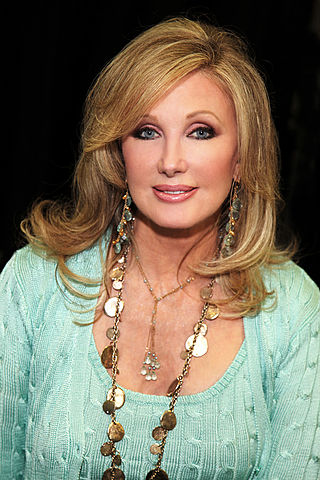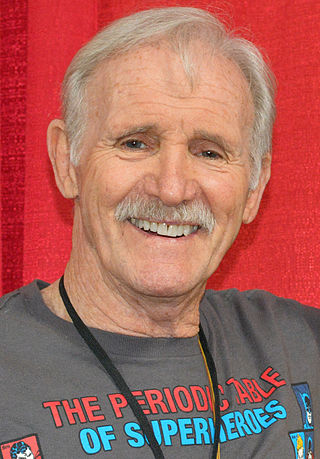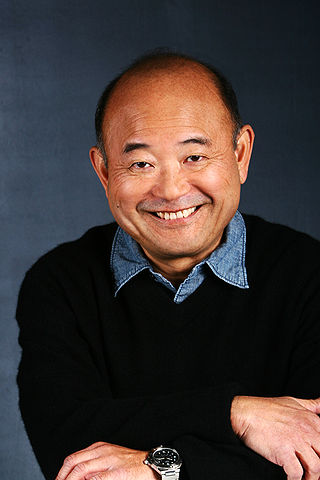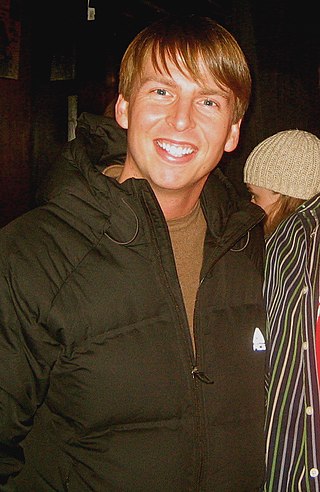Related Research Articles
A soap opera, daytime drama, or soap for short, is typically a long-running radio or television serial, frequently characterized by melodrama, ensemble casts, and sentimentality. The term "soap opera" originated from radio dramas originally being sponsored by soap manufacturers. The term was preceded by "horse opera", a derogatory term for low-budget Westerns.

The Screen Actors Guild (SAG) was an American labor union which represented over 100,000 film and television principal and background performers worldwide. On March 30, 2012, the union leadership announced that the SAG membership voted to merge with the American Federation of Television and Radio Artists (AFTRA) to create SAG-AFTRA.

Gabrielle Anne Carteris is an American actress and trade union leader. Her best known acting role is as Andrea Zuckerman in Beverly Hills, 90210.

The American Federation of Television and Radio Artists (AFTRA) was a performers' union that represented a wide variety of talent, including actors in radio and television, radio and television announcers and newspersons, singers and recording artists, promo and voice-over announcers and other performers in commercials, stunt persons and specialty acts—as the organization itself publicly stated, "AFTRA's membership includes an array of talent". On March 30, 2012, the members of AFTRA and of the Screen Actors Guild (SAG) voted to merge and form SAG-AFTRA.

Eddie Asner was an American actor. He is most notable for portraying Lou Grant on the The Mary Tyler Moore Show sitcom and Lou Grant drama on CBS, making him one of the few television actors to portray the same character in both a comedy and a drama.

Morgan Fairchild is an American actress. She began acting in the early 1970s and has had roles in several television series since then.

Frances Louise Fisher is an American and English actress. She began her career in theater and later starred as Detective Deborah Saxon in the CBS daytime soap opera The Edge of Night (1976–1981). In film, she is known for her roles in Unforgiven (1992), Titanic (1997), True Crime (1999), House of Sand and Fog (2003), Laws of Attraction (2004), The Kingdom (2007), In the Valley of Elah (2007), Jolene (2008), The Lincoln Lawyer (2011), and The Host (2013). From 2014 to 2015, Fisher starred in the ABC drama series Resurrection. In 2019, she starred in the HBO television series Watchmen, a sequel to the graphic novel of the same name.
Ned Vaughn is an American film and television actor who served as vice president of the Screen Actors Guild prior to becoming the founding executive vice president of SAG-AFTRA. He resigned that position on 21 August 2013, when he announced he would run as a Republican candidate for California's 66th State Assembly district, representing Los Angeles County's South Bay region. However, he later withdrew from the race.
Residuals are financial compensations that are paid to the actors, film or television directors, and others involved in making TV shows and movies in cases of the cable reruns, syndication, DVD release, or licensing to streaming media. Residuals are calculated and administered by industry trade unions like SAG-AFTRA, the Directors Guild of America, and the Writers Guild of America. The word is typically used in the plural form.

Kenneth Joseph Howard Jr. was an American actor. He was known for his roles as Thomas Jefferson in 1776 (1972) and as high school basketball coach and former Chicago Bulls player Ken Reeves in the television show The White Shadow (1978–1981). Howard won the Tony Award for Best Featured Actor in a Play in 1970 for his performance in Child's Play, and won the Primetime Emmy Award for Outstanding Supporting Actor in a Miniseries or a Movie for his work in Grey Gardens (2009).
A background actor or extra is a performer in a film, television show, stage, musical, opera, or ballet production who appears in a nonspeaking or nonsinging (silent) capacity, usually in the background. War films and epic films often employ background actors in large numbers: some films have featured hundreds or even thousands of paid background actors as cast members. Likewise, grand opera can involve many background actors appearing in spectacular productions.

Michael Bell is an American actor who is most active in voice over roles. He has acted in video games and animated series, including Legacy of Kain, The Transformers, G.I. Joe: A Real American Hero, The Houndcats, Rugrats, The Smurfs, The Incredible Hulk, and Snorks and appeared on-screen in film and television, including the TV programs Dallas and Star Trek.

Clyde Kusatsu is an American actor. A prolific character actor, he has appeared in over 300 film and television productions since his debut in 1970. He is the Secretary of the SAG-AFTRA Foundation, after previously serving as the first elected President of the SAG-AFTRA Los Angeles Local and was four times elected the National Vice President Los Angeles, from 2013 through 2021.
Financial Core refers to a legal carve-out that permits workers opposed to participating in a labor union to be employed under the benefits of a union's contracts without compelling them to be a member of that union.

Amy Aquino McCoy is an American television, film, and stage actress. The graduate of Yale University has appeared in television series such as Brooklyn Bridge, ER, and Being Human, and was nominated for a Screen Actors Guild Award for her role in Picket Fences. She was co-secretary/treasurer of the SAG-AFTRA until August 2015 and starred in the television series Bosch as Lt. Grace Billets.

Jack McBrayer is an American actor and comedian. He gained national exposure for his portrayal of characters on Late Night with Conan O'Brien and as Kenneth Parcell in 30 Rock. For his role in 30 Rock he was nominated for Primetime Emmy Award for Outstanding Supporting Actor in a Comedy Series at the 61st Primetime Emmy Awards. He has also had many voice acting roles. During his time at The Walt Disney Company, he voiced the character Fix-It Felix Jr. in the 2012 film Wreck-It Ralph and later its 2018 sequel, as well as the title character Wander in Wander Over Yonder. McBrayer has recurring roles in Phineas and Ferb, Puppy Dog Pals, Amphibia, The Middle and in the Netflix series Big Mouth. He appeared in The Big Bang Theory on the Season 10 premiere episode as Penny's older brother, Randall. He also appeared in Odd Squad: The Movie as Weird Tom.

Yale Summers was an American actor and producer, whose credits included the 1960s CBS television series, Daktari, with Marshall Thompson.

The Screen Actors Guild - American Federation of Television and Radio Artists is an American labor union formed in 2012 by the merger of the Screen Actors Guild and the American Federation of Television and Radio Artists. It represents approximately 160,000 media professionals worldwide. SAG-AFTRA is a member of the AFL-CIO, the largest federation of unions in the United States. SAG-AFTRA is also a member of the International Federation of Actors.
From October 2016 to September 2017, SAG-AFTRA, representing video game voice actors, went on strike against American video game companies over failed contract renegotiation terms of the Interactive Media Agreements that had been in discussion since February 2015. The union sought to have actors, voice actors, and motion-capture actors who contribute to video games be better compensated with residuals based on video game sales atop their existing recording payments; the game companies asserted that the industry as a whole eschews the use of residuals, and by giving the actors these, they would trivialize the efforts of the developers who are "most responsible" for the development of the games. In exchange, the companies had offered a fixed increase in rates and a sliding-scale upfront bonus for multiple recording sessions, which the union had rejected. Other issues highlighted by the strike include better transparency in what roles and conditions actors would perform, more safety precautions and oversight to avoid vocal stress for certain roles, and better safety assurances for actors while on set.

The 1980 actors strike was a labor strike held in July–October 1980 by the Screen Actors Guild (SAG) and the American Federation of Television and Radio Artists (AFTRA), two labor unions representing actors in the American film industry. The strike was caused by a breakdown in labor contract negotiations between the two unions and representatives of film studios, television networks, and other independent producers. The primary point of contention regarded residuals from home media, such as videocassettes and pay television. Specifically, the union was seeking a form of profit sharing wherein they would receive a percentage of the revenue made from home media releases. Additionally, the unions wanted a 35 percent salary increase across the board for their members. By mid-July, the union and industry representatives were at an impasse, and the strike started on July 21. Several days later, the American Federation of Musicians also went on strike for similar reasons.
References
- ↑ Cummings, Betsy (July 25, 2004). "HOME FRONT; Bit Parts on Screen, and a Salary to Match". The New York Times . Retrieved 2012-01-04.
- ↑ Allen, Robert Clyde (April 30, 1985). Speaking of Soap Operas . UNC Press Books. p. 53 . Retrieved 2012-01-04.
under-5 soap opera.
- ↑ "Resume Billing Double 19 Productions". Double 19 Productions. May 19, 2009. Retrieved 2012-01-04.
- 1 2 3 Lenhart, Jennifer. "As The World Turns Interview: Patrick Stephenson". Soap Opera Digest . Archived from the original on January 30, 2009. Retrieved April 30, 2016.
- 1 2 Ciaccia, Maria (January 30, 2009). "On the Scene at General Hospital". Generalhospital.about.com. Retrieved April 30, 2016.
- ↑ "When An Actor Should Join A Union". Actorschecklist.com. December 1, 2007. Archived from the original on February 13, 2015. Retrieved April 30, 2016.
- ↑ "SAG-AFTRA Network TV Code" (PDF). SAG-AFTRA. Retrieved April 30, 2016.
- ↑ Kanner, Bernice (August 16, 1993). "SOAP STAR FOR A DAY". New York . Retrieved April 30, 2016.